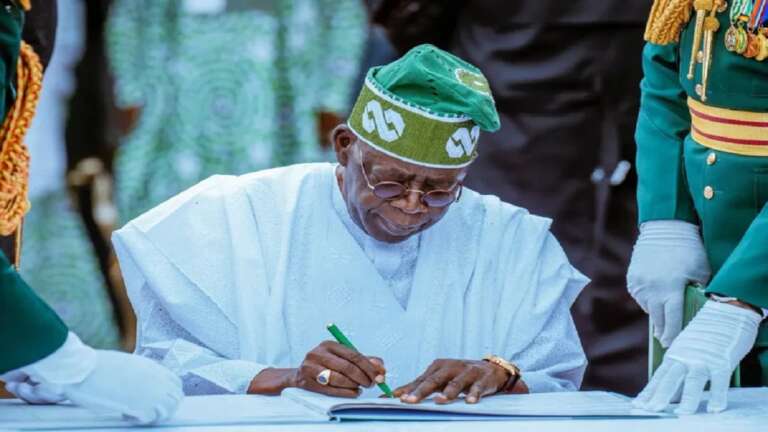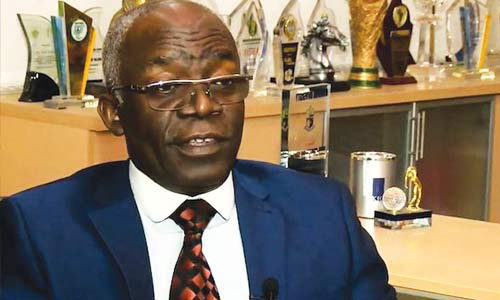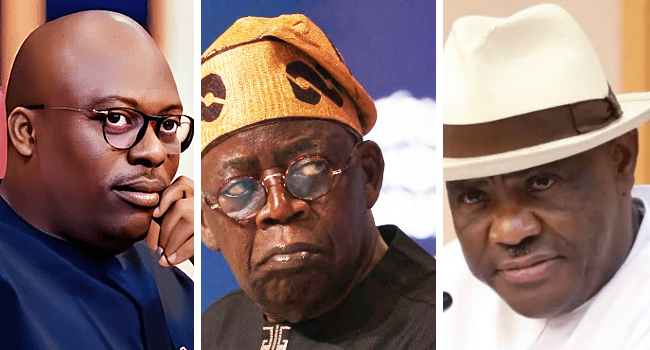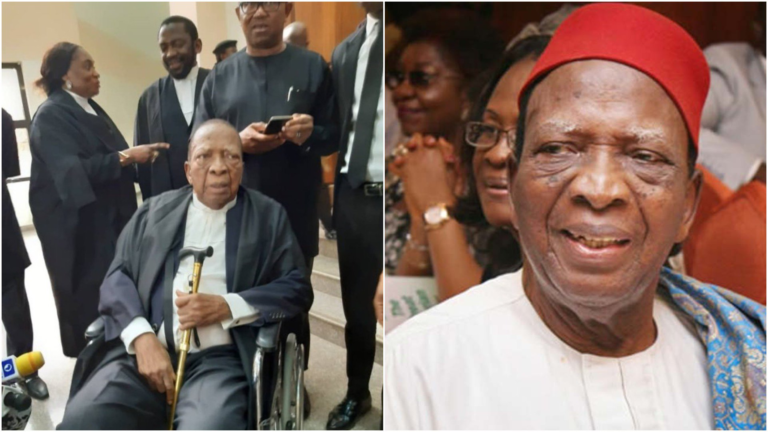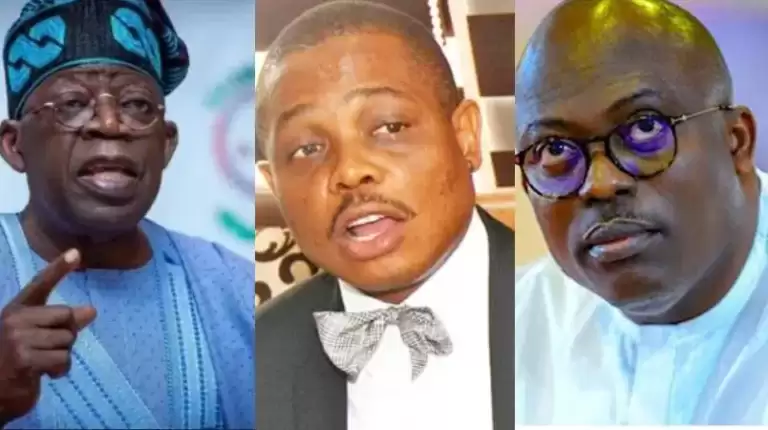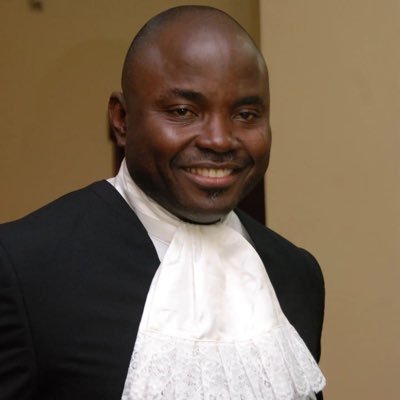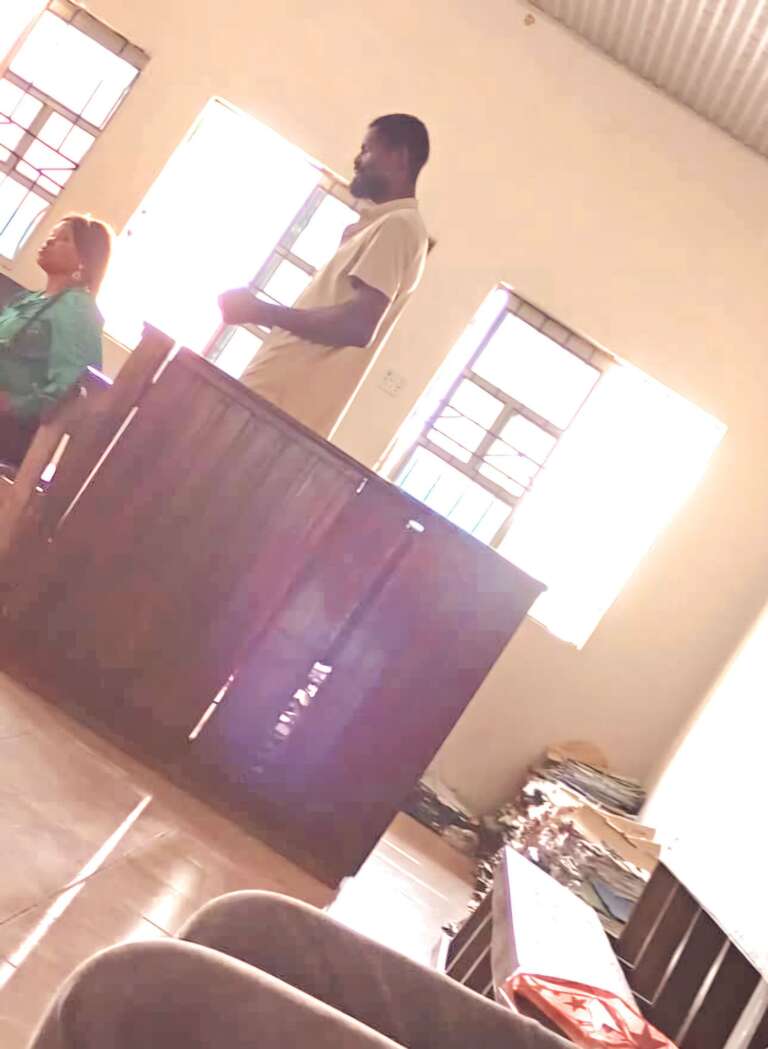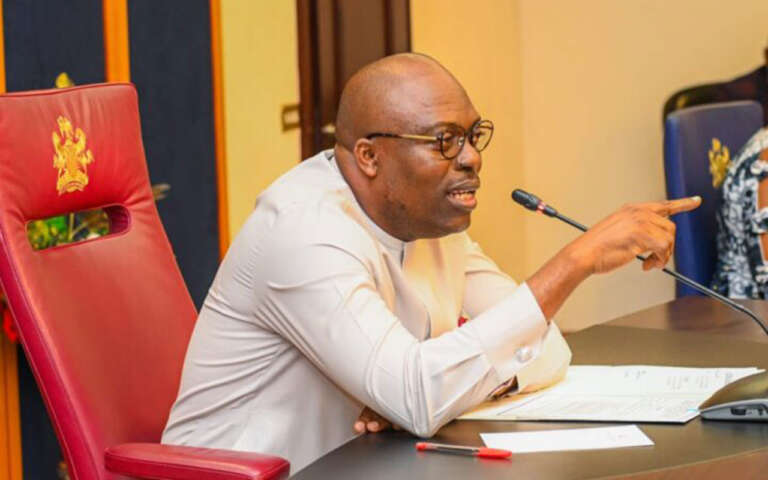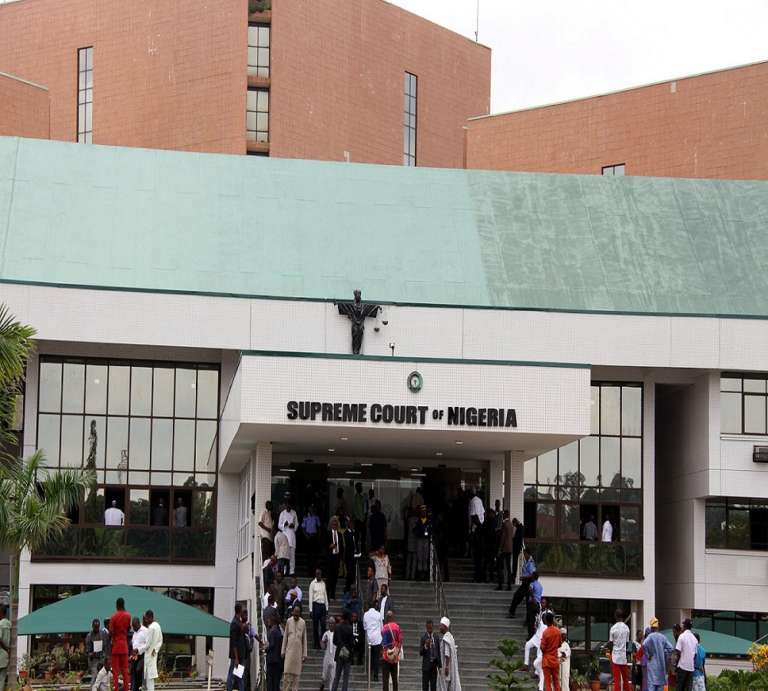The Nigerian Bar Association (NBA) has condemned the suspension of River State Governor Siminalayi and other elected officials of the state under President Bola Tinubu’s declaration of a state of emergency in the state.
The body of Nigerian lawyers described the suspension of the elected state officials for six months as unconstitutional and an assault on democracy.
In a statement on Tuesday, NBA President Afam Osigwe said the move violates Section 305 of the Nigerian constitution, which outlines strict conditions for emergency rule.
The statement reads:
The Nigerian Bar Association (NBA) has taken due notice of the declaration of a state of emergency in Rivers State by President Bola Ahmed Tinubu, as contained in his address to the nation today, 18th March 2025. This declaration according to the President is due to the prevailing political tension in the state and due to the “vandalization of pipelines between yesterday and today:” This development has far- reaching constitutional and democratic implications, particularly in light of the provisions of Section 305 of the 1999 Constitution of the Federal Republic of Nigeria (as amended), which governs the procedure for the proclamation of a state of emergency and which the President purported to have relied upon.
Section 305 of the Constitution indeed vests the President with the power to declare a state of emergency, the Section stipulates strict conditions and procedural safeguards that must be followed to ensure that such extraordinary measures do not infringe on democratic governance and fundamental human rights.
The NBA is of the opinion that for a state of emergency to be validly declared in a state, the facts and circumstances enumerated in Section
305 subsections (3(c), (d) and (e)), of the Constitution, must be fulfilled.
These circumstances include: (c) actual breakdown of public order and public safety in the Federation or any part of such extent as to require extraordinary measures to restore peace and security. (d) a clear and present danger of an actual breakdown of public order and public safety in the Federation or any part thereof requiring extraordinary measures to avert such danger. (e) an occurrence or imminent danger or the occurrence of any disaster or national calamity affecting the community or a section of the community of the Federation.”
For a state of emergency to be declared, Section 305(3) of the constitution outlines specific conditions, including:
- War or external aggression against Nigeria.
- Imminent danger of invasion or war
- A breakdown of public order and safety to such an extent that ordinary legal measures are insufficient.
- A clear danger to Nigeria’s existence.
- Occurrence of any disaster or natural calamity affecting a state or a part of it.
- Such other public danger that constitutes a threat to the Federation.
The NBA questions whether the political crisis in Rivers State has reached the level of a complete breakdown of law and order warranting the declaration of a state of emergency. We think not! Political disagreements, legislative conflicts, or executive-legislative tensions do not constitute a justification for emergency rule. Such conflicts should be resolved through legal and constitutional mechanisms, including the judiciary, rather than executive fiat.
The essence of a state of emergency as can be seen from Section 11(1) of the Constitution is to empower the National Assembly to make laws for the Federation or any part therefore with respect to the maintenance and securing of public safety and public order and providing, maintaining and securing of such supplies and service as may be designed by the National Assembly as essential supplies and services.
The declaration which the President stated was to forestall further breakdown of law and order in the State bedevilled by political crisis for almost a year now, does not meet the threshold stated in Section 305 of the Constitution. Thus, the purpose or objective of the declaration of a state of emergency by a President is to among other things enable the Federal Government to take extraordinary measures to restore peace and security to such a state, and forestall a clear and present danger of an actual breakdown of public order and public safety in the state requiring extraordinary measures to avert such danger, and not to suspend, take over or assume governance over the state.
This is clearly reinforced by Section 11(4) of the Constitution which provides that “Provided that nothing in this Section shall be construed as conferring on the National Assembly power to remove the Governor or the Deputy Governor of the State from the office”.
The power given to the President under Section 305 of the Constitution does not empower the President to suspend a Governor, Deputy Governor or other democratic organs of government. By the clear provision of Section 11 of the Constitution, while “the National Assembly may make laws for the Federation or any part thereof with respect to the maintenance and securing of public safety and public order and providing, maintaining and securing of such supplies and services as may be designated by the National Assembly as essential supplies and services”, there is nowhere the President is empowered or authorised to suspend other elected State officials or legislature. It is therefore unconstitutional for the President to purport to have the power to suspend the Governor and his Deputy as well as suspend the House of Assembly for six months or any period whatsoever.
While we concede that the National Assembly may make laws for a state in which a state of emergency has been declared, we reiterate that the Rivers State House of Assembly could still make laws for the state. This is why it is expressly provided in Section 11(2) of the Constitution that “Nothing in this section shall preclude a House of Assembly from making laws with respect to the matters referred to in this section, including the provision for maintenance and securing of such supplies and services as may be designated by the National Assembly as essential supplies and services.”
The NBA is therefore gravely concerned about the purported suspension by the President of the Governor of Rivers State, the Deputy Governor, and the Members of the Rivers State House of Assembly for six months. We have no doubt the pronouncement in this regard is unconstitutional.
The 1999 Constitution does not grant the President the power to suspend or otherwise prevent an elected governor, deputy governor, or members of a state’s legislature from exercising the functions of their offices, under the guise of a state of emergency. Rather, the Constitution provides clear procedures for the removal of a governor and deputy governor as per Section 188. Similarly, the removal of members of the House of Assembly and dissolution of parliament is governed by constitutional provisions and electoral laws, none of which appear to have been adhered to in the present circumstances. These provisions have not been followed in this instance.
We reiterate that a declaration of emergency does not automatically dissolve or suspend elected state governments. The Constitution does not empower the President to unilaterally remove or replace elected officials—such actions amount to an unconstitutional usurpation of power and a fundamental breach of Nigeria’s federal structure. The NBA firmly asserts that the situation in Rivers State, though politically tense, does not meet the constitutional threshold for the removal of elected officials.
The purported suspension of Governor Fubara, his Deputy, and members of the Rivers State House of Assembly is therefore unconstitutional, unlawful, and a dangerous affront to our nation’s democracy. The same goes for the appointment of an Administrator to govern the State. The Constitution neither justifies the respective suspensions nor the
appointment of an Administrator.
These provisions provide that a state of emergency declared by the President does not assume automatic validity. It requires legislative ratification within a defined timeframe to remain in effect. The NBA, therefore, emphasizes that the National Assembly should not approve the declaration of a state of emergency in Rivers State as the same is unconstitutional.
In light of the foregoing, the Nigerian Bar Association:
a. Calls on the President to rescind the part of his declaration suspending of Governor Siminalayi Fubara and his Deputy and the Rivers State House of Assembly for a period of six months as the same is unconstitutional.
b. Calls on the President to ensure strict adherence to constitutional provisions in implementing the state of emergency and to act within the framework of the law. Any deviation from the laid-down constitutional process would set a dangerous precedent for democratic governance in Nigeria.
c. Urges the National Assembly to perform its constitutional duty diligently by independently reviewing the President’s proclamation and ensuring that it meets the legal and factual requirements before granting any approval as well as refusing approval to the parts of the declaration we have shown to have violated the Constitution. In fact, the National Assembly must critically examine whether the crisis in Rivers State justifies such extreme measures and whether the suspension of elected officials aligns with constitutional provisions.
d. Warns against arbitrary executive actions that may undermine the rule of law or result in excessive use of force by security agencies under the guise of enforcing emergency measures. The rights of citizens must be always protected, even in situations of emergency.
e. Emphasizes the need for political dialogue and institutional solutions to address the underlying issues fuelling the crisis in Rivers State. Resorting to emergency rule should not become a default mechanism for resolving political conflicts, as democracy thrives on dialogue, respect for the rule of law, and adherence to due process.
f. Encourages all stakeholders, including the judiciary, civil society, and the international community, to closely monitor the situation in Rivers State to ensure that fundamental rights, democratic principles, and the independence of institutions are not compromised.
The NBA remains committed to upholding the Constitution, defending democratic governance, and ensuring that the rule of law prevails in Nigeria. A state of emergency is an extraordinary measure that must be invoked strictly within constitutional limits. The removal of elected officials under the pretext of emergency rule is unconstitutional and unacceptable.
We call on all relevant authorities to act in accordance with the law and the best interest of the country. Nigeria’s democracy must be protected at all costs, and the Constitution must be upheld as the supreme legal authority in all circumstances.
Mazi Afam Osigwe, SAN
President

